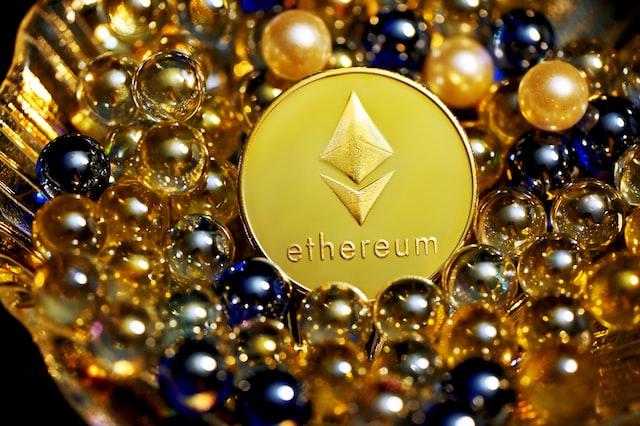We’re more than ever tied to our mobile devices, or at least, the connectivity and technology they facilitate. Smartphones are mini-computers because they can perform complex tasks like web surfing, music, messaging, etc., so it’s no surprise they’ve become part of our daily lives. These days, everything is mobile-first, from banking to filmmaking. Digital transformation stems from cultural and individual transformation and tends to be broad in scope. Fueling the next wave of innovation are Web3 and blockchain technology, which are perfectly positioned to become essential technologies. From the acceptance of NFTs to the proliferation of DAOs, rapid innovations diffuse into the world.

Smartphones set the foundation for Web3 and blockchain technology, and they’re the next leg of user growth. The smartphone industry is dominated by the likes of Apple, Samsung, and BBK Electronics, to mention but a few, so Web3 smartphone manufacturers face fierce competition, so making a mark for themselves is particularly challenging. Only time will tell if smartphones will take Web3 and blockchain technology to the masses.
Let’s Take a Quick Look at Blockchain Smartphones for Web3
For Web3 and blockchain to witness the next level of mainstream adoption, individuals should be able to access new tech more easily. Therefore, leading companies broke into this market, introducing feature-heavy blockchain smartphones for Web3. HTC provides a good illustration of this. The Exodus, a gadget that can also be used as a crypto wallet, allowing users to store and send Bitcoin, Litecoin, and Ethereum, is also capable of functioning as a bitcoin node. These are just some of the features that make this product so exciting. As with anything, you get what you pay with mobile devices.
A blockchain phone for Web3 can be defined as a handheld device that leverages blockchain technology to store crypto-related information. Simply put, it merges standard smartphone features and support for crypto, the metaverse, and DApps. Although blockchain smartphones for Web3 are analogous, if not identical, to regular smartphones, they couldn’t be different. Not only do these devices store personal information, but they also provide an additional layer of security; users don’t risk becoming victims of data breaches or hacks. Many agree with the fact that Web3 is going mobile as an ever-increasing number of people run their lives off smartphones.
Ethereum Scaling Tool Polygon Enables Web3 Functionality in Smartphones
Earlier this year, Solana introduced Saga, a Web3-focused smartphone that can be used to manage digital assets like tokens and NFTs. Saga’s launch comprised the Solana Mobile Stack, a framework enabling Android developers to create better mobile experiences for wallets and apps on the Solana blockchain. Coming back to the topic, the Saga smartphone features a seed vault to store private keys, a mobile wallet adapter, Solana Pay for QR code payment, and a DApp store. Solana has set a release date for 2023for the Android-based phones, meaning that the device is available for pre-order.
Polygon, which uses the Ethereum blockchain as its base protocol, follows in the footsteps of the Solana blockchain in making Web3 available to a broader audience. More exactly, it’s announced a collaboration with tech startup Nothing to release the Nothing Phone, which will display NFTs on the home screen and allow users to see what is the price of Ethereum and other cryptocurrencies. Polygon and Nothing will join their efforts to finalize a project called Nothing Community Dots, a program inviting community members to collect NFT tokens that unlock special perks, such as access to new products and offline events.
Polygon recently teamed up with Instagram and Reddit to launch NFTs, which will allow artists to capture the economic value of their work and transform their social capital. Soon enough, Internet users will be able to mint, flaunt, and sell digital collections powered by NFTs on Polygon. NFTs may be integrated into Instagram as standard posts in the newsfeed. As far as Reddit is concerned, it’s become one of the most significant crypto-art marketplaces by refraining from deploying the acronym NFT. The social media platform airdropped Polygon-based collectible avatars, such as Aww Friends, The Singularity, and Meme Team.
So, Are Blockchain Smartphones for Web3 Worth Trying?
Forget about flexible displays, as the world is moving toward blockchain smartphones for Web3. The industry has pivoted from making privacy-centric smartphones to mobile devices that securely store crypto, fostering the decentralization of the digital world. The Web3 ecosystem is made up of blockchain-based apps that look like regular mobile apps, yet they’re not owned or controlled by massive tech corporations. With billions of people across the world using smartphones, it’s likely that blockchain smartphones for Web3 will gain massive adoption. Nonetheless, success depends on the choices manufacturers make, that is, going solo or agreeing to cooperate.
There are two types of blockchain smartphones, namely, one that runs on Android together with a secondary open-source OS powered by blockchain technology and smartphones that run on blockchain-based OS with a limited ecosystem of apps. If the existing blockchain phones for Web3 are meant to facilitate exchanges and payments using various digital assets, newer generations of mobile devices will allow users to buy and sell products and other offerings and receive immediate discounts, refunds, or rebates. For some, they may be more suitable as secondary smartphones. With time, robotics will become smaller and less expensive, so the technology will be more accessible.
Conclusion
People are quickly beginning to adopt Web3 and blockchain technology as they seek a more secure and private interaction with the Internet. The advent of digital assets enables people to own and control their data via distributed personal data stores, which helps drive transparency and authenticity. The Web is no longer a static medium. In the past years, NFTs have literally exploded in popularity because they’re rare and unique. From Nike to Budweiser, some of the most famous brands are betting on NFTs, leveraging them to create digital scarcity and exclusivity. Many believe that the Ethereum Merge will drive the adoption of NFT projects and could bring many users to Web3.
















